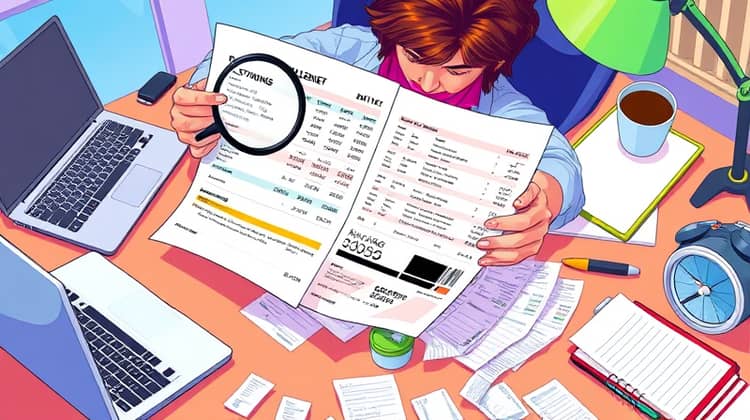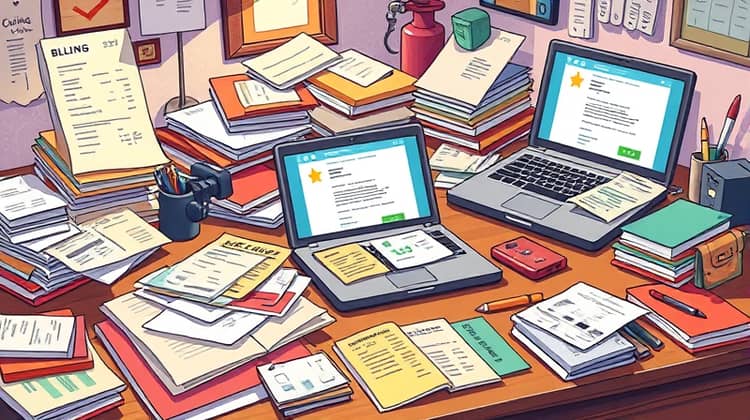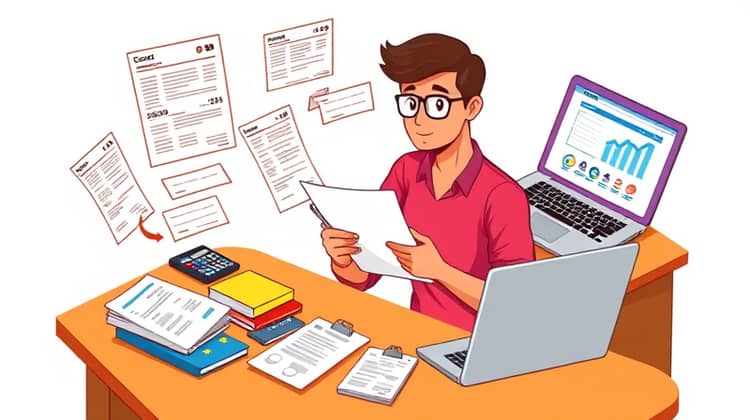In today's consumer-driven world, the convenience of using credit cards comes with its share of responsibilities. One such responsibility involves the potential need to dispute a charge that seems incorrect or unfair. Whether it's a billing error, unauthorized transaction, or a charge for a product or service never received, knowing how to effectively dispute a credit card charge is crucial for protecting your finances.
This article will guide you through the steps necessary to successfully dispute a credit card charge, ensuring that you are well-prepared to handle any discrepancies that may arise. The process may seem intimidating, but with the right approach and persistence, you can increase your chances of a favorable outcome.
1. Review Your Billing Statement

The first step in disputing a credit card charge is to carefully review your billing statement. Look for any discrepancies in the charges listed, such as unfamiliar transactions or amounts that do not match your records. It's essential to double-check each charge against your receipts or account of purchases to verify that they align with what you remember spending.
Don't overlook any small charges; sometimes, even minor erroneous fees can compound over time. Be thorough in your examination, as it sets the foundation for your dispute if needed.
2. Gather Supporting Documentation

- Copies of your billing statements
- Receipts for purchases you made
- Any correspondence with the merchant regarding the charge
- Evidence of returned items or canceled services if applicable
- Documentation of any previous disputes or communications related to this charge
Once you've identified the charge you wish to dispute, the next step is to gather all relevant supporting documentation. This may include receipts, previous billing statements, emails, or any evidence that supports your case. Having comprehensive documentation will strengthen your argument and provide clarity to your credit card issuer.
Organizing this information in advance will facilitate the dispute process and prevent any potential setbacks later on. You may also want to make digital copies of your documents to ensure that you have backup evidence if anything gets lost or misplaced.
The more evidence you can provide, the more credible your dispute will appear, so take the time to compile everything needed before proceeding.
3. Contact the Merchant

Before escalating the issue to your credit card issuer, it's often beneficial to contact the merchant directly. Reach out to their customer service department to discuss the charge and explain your concerns. Many issues can be resolved at this level, saving you time and effort in the dispute process.
Be polite but assertive when speaking with the merchant. Sometimes, they may offer a refund or adjustment without the need for further escalation, especially if the error was on their part.
4. File a Dispute with Your Credit Card Issuer

If contacting the merchant does not lead to a satisfactory resolution, it's time to file a formal dispute with your credit card issuer. Each issuer has specific procedures for disputing charges, which may involve submitting a form online, writing a letter, or speaking directly with a customer service representative. Follow their protocol precisely to avoid delays in processing your dispute.
When filing the dispute, provide all the relevant details and include your supporting documentation. Keep a record of your communications, including dates, times, and names of representatives you speak with, as this can be critical information if further follow-up is necessary. The law typically requires credit card issuers to investigate disputes promptly, often within 30 days.
- Review the issuer's dispute process
- Provide detailed and accurate information
- Attach copies of supporting documentation
- Keep a record of your dispute submission
- Follow up on the status of your dispute
5. Follow Up on Your Dispute

After filing your dispute, it’s important to actively follow up to ensure that your credit card issuer is processing your request. Many issuers provide a timeframe for dispute resolution, but staying engaged can help expedite the process. Don't hesitate to call or check your account online for updates on your dispute status.
If the issuer has not resolved the dispute within the expected timeline, continue to check in with them to remind them of your case and its urgency. Your persistence can make a significant difference in how quickly your dispute is handled.
Tips for a Successful Dispute

Successfully disputing a charge requires preparation and knowledge of the process. Firstly, always be diligent in reviewing your statements regularly to catch any issues early before they escalate. The sooner you address a discrepancy, the easier it can be to resolve.
Secondly, maintain a calm and patient demeanor whether you're dealing with the merchant or your credit card issuer. Emotions can run high in disputes, but keeping your cool can lead to a more constructive dialogue. Thirdly, document every interaction related to your dispute, noting down dates, times, and details of conversations, which can serve as critical evidence later.
Furthermore, familiarize yourself with the Fair Credit Billing Act (FCBA), which protects consumers in disputes and outlines your rights. Understanding these protections can empower you during the dispute process. Lastly, ensure you submit all documentation in a clear and organized manner.
Be transparent about your experience and what resolution you seek when speaking with both merchants and credit card issuers to help facilitate a smooth resolution.
- Review statements regularly
- Stay calm and patient
- Document every interaction
- Understand your consumer rights
What to Expect After Filing a Dispute

Once you have filed your dispute, the credit card issuer will typically investigate the matter, which may take up to 30 days. During this time, they might contact you for additional information or clarification, so remain available and responsive.
Typically, the issuer will either find in your favor or against it, and they will notify you of their decision. If they decide in your favor, they will issue a credit to your account for the disputed charge.
When to Involve a Third Party

Sometimes, disputes can be particularly challenging, and you may find that neither the merchant nor the credit card issuer is willing to help. In such cases, it may be beneficial to involve a third party, such as a consumer protection agency or a legal advisor. They can provide guidance on how to proceed and may offer mediation services to resolve the issue.
Involving regulatory bodies like the Consumer Financial Protection Bureau (CFPB) can also be an option if you have exhausted all other avenues. They may investigate your complaint and help advocate for your rights as a consumer. However, this should be a last resort after all attempts to resolve the dispute directly have failed.
Conclusion

Disputing a credit card charge can feel overwhelming, but with the right knowledge and preparation, you can navigate the process more effectively. Taking the time to review your statements, gather documentation, and follow through with necessary steps will help ensure your voice is heard and your rights are protected as a consumer.
Remember, persistence is key, and understanding your rights will empower you throughout the dispute process. By following these steps, you can confidently address any billing discrepancies in a timely manner.














